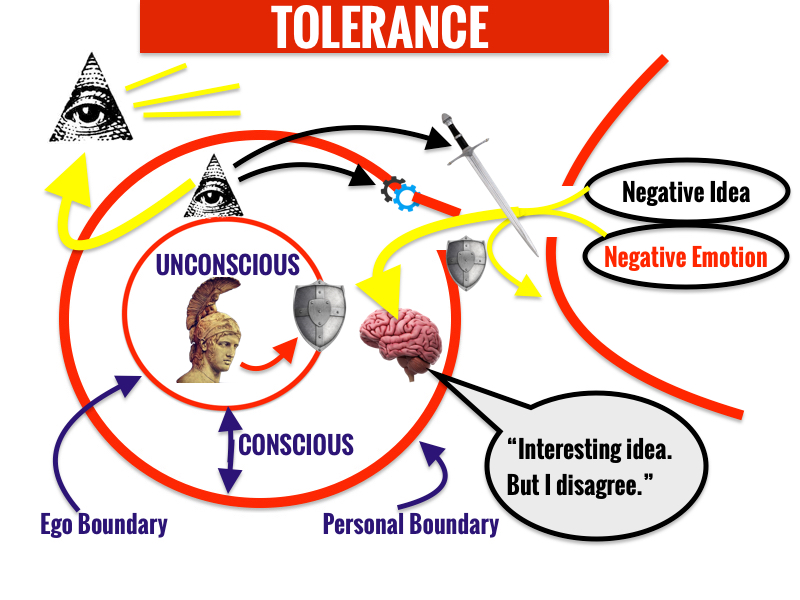Tolerance is simple - allowing that of which one disapproves, which is the ultimate in respect for what boundaries even are - that we don’t own or control the opinions or perspectives of others.
We may be reminded of the famous quote often misattributed to Voltaire, that “I may disapprove of what you say, but I will defend to the death your right to say it.” Like many of the thinkers of the Enlightenment, whether Voltaire bought into this concept or not - he likely would have - we have an inherent nature in the personal boundary which has been illuminated by philosophers through history, from John Locke, to Rousseau, those who inspired the American Declaration of Independence, where it states that we all have “unalienable rights,” which are the boundary, and among them, “the right to life, liberty and the pursuit of happiness.” These three represent the three psychological resources, and the boundary itself, that which is “unalienable” about us, and cannot be stripped away, even by massive armies.


